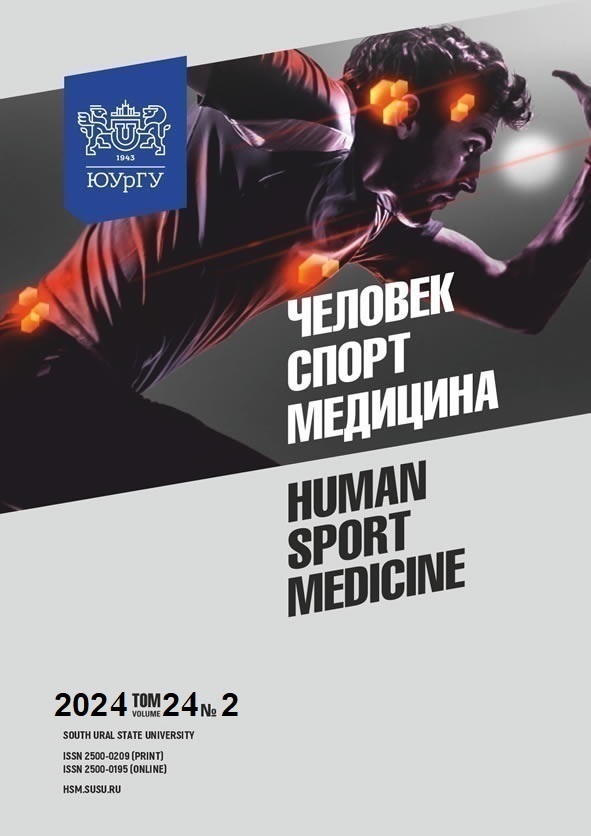THE ROLE OF BIOCHEMICAL MARKERS IN THE ADAPTATION OF WEIGHTLIFTERS TO PHYSICAL EXERCISE
Abstract
Aim. The objective of this study was to enhance the athletic performance of highly skilled weightlifters by evaluating key biochemical markers in their blood. This approach aims to adjust adaptive reserves during the pre-competitive phase of training and identify the impact of sex on these markers. Materials and methods. From August to November 2023, 20 weightlifters underwent comprehensive medical examinations in the pre-competitive phase of training, including detailed assessments of their blood serum parameters such as total protein, creatinine, urea, uric acid, liver function tests (liver transaminases, serum bilirubin, alkaline phosphatase), creatine phosphokinase, glucose, cholesterol, and triglycerides. These analyses were conducted using advanced laboratory equipment and diagnostic systems (clinical chemistry analyzer Furuno CA-270, DiaSys diagnostic systems). Results. Our findings reveal significant variations in biochemical markers among athletes, particularly those not adhering to optimal training and dietary practices. Athletes following a structured training regimen, with balanced diets, exhibited normal biochemical marker levels, indicating effective adaptation to physical activity. Conclusion. This study underscores the critical role of monitoring these markers throughout the training cycle to prevent under-recovery and overtraining, thereby enhancing athletic performance and health.
References
References on translit
Copyright (c) 2024 Human. Sport. Medicine

This work is licensed under a Creative Commons Attribution-NonCommercial-NoDerivatives 4.0 International License.















